Keeping baby toys clean is essential for maintaining your child's health and safety. Babies explore their world by touching, tasting, and playing with everything around them, ensuring their toys are free from dirt, germs, and harmful substances. Here's a guide on how to How To Clean Baby Toys.
Other Topics You Might Like
Helpful Products You Might Like
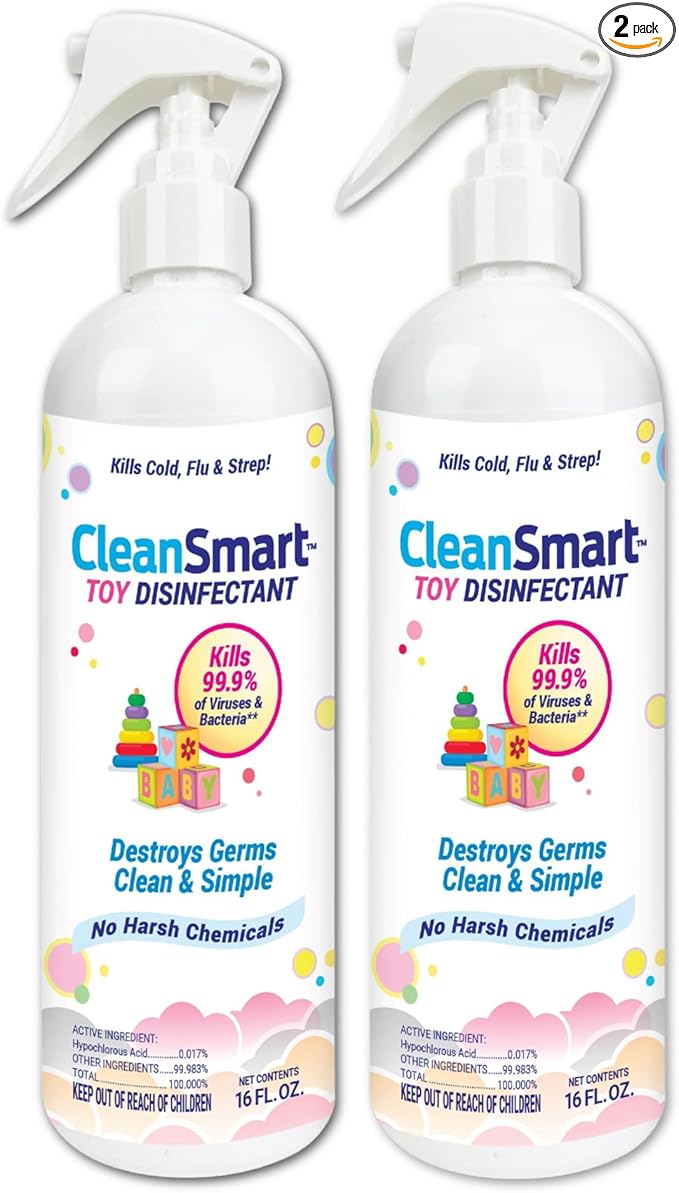
CleanSmart Toy Disinfectant Spray
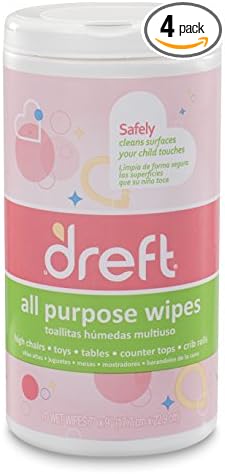
Dreft All Purpose Baby Cleaning Wipes For Baby Toys
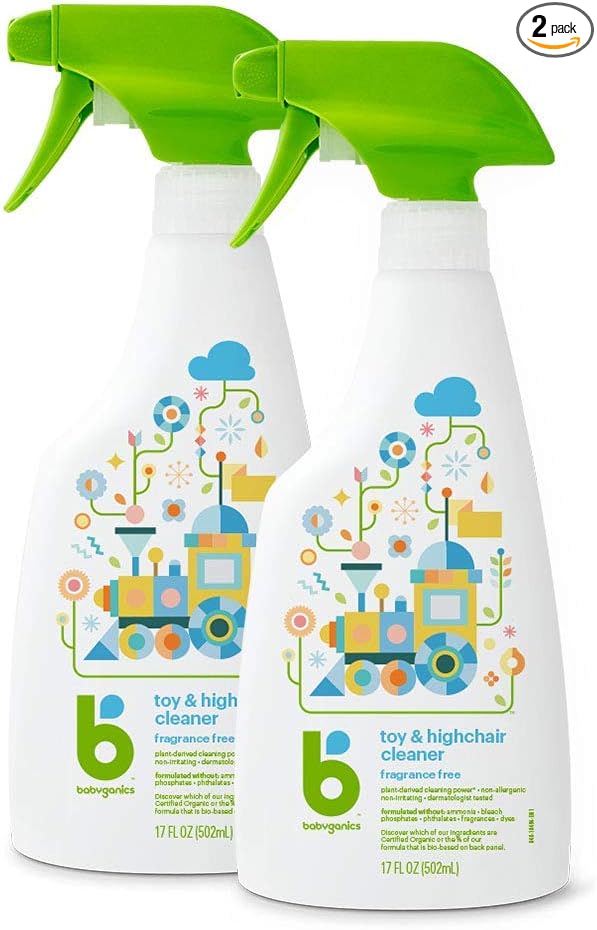
Babyganics Toy & Highchair Cleaner Spray Bottle
"(Paid Links)" 
Importance of Cleaning Baby Toys
Babies are especially vulnerable to germs and bacteria because their immune systems are still developing. Toys might have dust, saliva, bits of food, and other disgusting contaminants collected on them over the years. Thorough and frequent cleaning will help to keep your kids well, love clean and avoid unpleasant associations with playing.
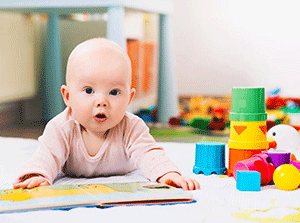
General Cleaning Guidelines
Rather than explaining specific cleaning methods, here are some of the most important things to avoid.
Read labels
Always read the manufacturer's care instructions before cleaning toys. Microwave steam sterilizers are also good, but if they aren't appropriate for your bottles, then they're probably not going to work.
Frequency
You should clean your baby's toys once a week, especially after someone becomes ill or if there is a mess.
Choose Baby-Safe Cleaning
Never use harmful chemicals for cleaning; use homemade or natural baby-safe cleaning solutions.
Cleaning Methods by Toy Type
Plastic and Rubber Toys
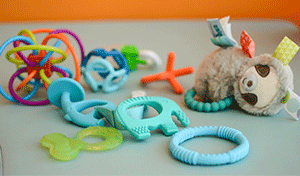
These are usually the simplest to clean. Here’s how:
Hand Wash
Add a few drops of mild dish soap to warm water. Wipe the toys with a damp cloth or sponge. Note, to rinse well with water and let them air dry.
Dishwasher
Some plastic toys can withstand the dishwasher. Set the dishwasher on the top tier and use a delicate cycle. Do not set the temperature very high, as it could cause the toys to warp.
Disinfecting Solution
To make the toys even cleaner, soak them in a solution of one part white vinegar to three parts water for about 10 minutes. Rinse and let dry.
Soft Toys and Plush
These can be more subtle and delicate categories; these need extra care:
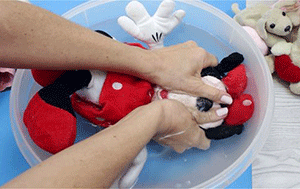
Machine
Look for a Care Label Soft toys are usually washable via gentle cycle in a laundry bag. Machine wash naturally, Air dry, or tumble low.
Spot Cleaning
If you cannot machine wash, Take a damp cloth with mild soap to clean any dirty areas. Wipe with a dry cloth thoroughly.
Wooden Toys
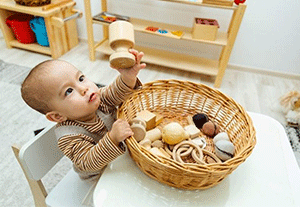
Take care of wooden toys in a gentle manner to avoid any damage:
Print Wipe Down
Take a damp cloth and wipe the toy's surface. Don't let the moisture stand for too long, as wood will warp easily.
Disinfect
Bath Toys
Such toys can worsen mildew issues, when they are not washed on time:
Rinse After Use
Give the toys a good rinse under running clean water and air dry completely after every bath.
Deep Cleaning
Soak in a solution of water and vinegar for 10 minutes, then use a soft brush to scrub off any trace of mold. Rinse well.
Conclusion
The chore of cleaning baby toys is probably the hardest one for most people. However, with some simple methods and a little regular cleaning, one can ensure that his or her baby has an enjoyable and safe time during playtime.
